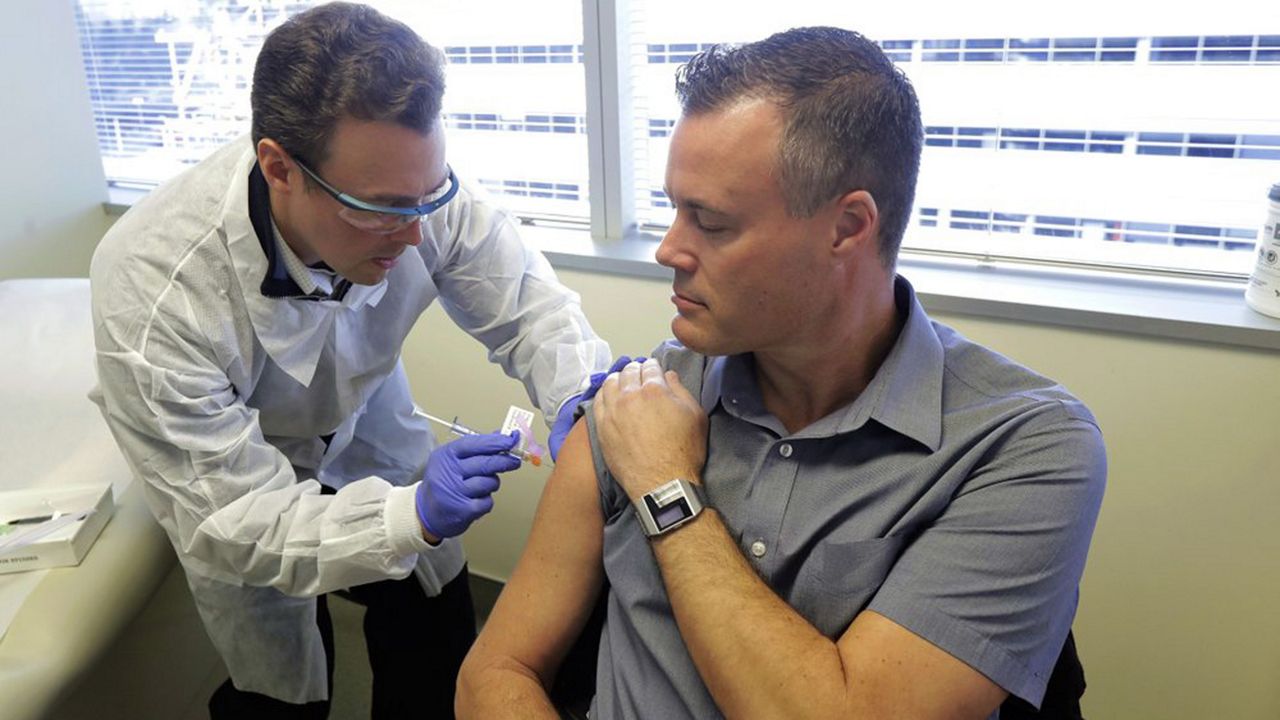Would you be willing to download app that tracks your movements and notifies you if you've been in touch with someone who has tested positive for coronavirus?
How about taking a 20-minute test for the virus before entering a nursing home?
Or taking a test that clears you before going back to your job or school?
Those are the potential tools and scenarios that could be used in order to begin a re-opening of the economy that would require millions of people to be tested before they go back to work.
New York has reached a plateau in hospitalizations and for the first time recorded a net negative growth in intensive care patients. The good news, tempered by the increase in deaths this week, is attributed to social distancing efforts that have beaten even the best-case scenario projections.
But what happens next? A slow, perhaps painful for some, re-opening of New York's shuttered economy.
"That's going to be the next question, the next issue we have to deal with," Gov. Andrew Cuomo said on Friday in his daily briefing.
Absent a coronavirus vaccine that is still likely a year away, officials will be relying on mass testing of the population to bring people back to work.
Cuomo has hinted before at what it would take to re-open the state: Tests for coronavirus antibodies to determine if a person has had the virus and is safe from contracting it or spreading it again.
On Friday he was at his most expansive for what this would likely require: A scale on the order of nine million tests for New York alone -- a scale that won't be built overnight.
"The key to re-opening is going to be testing," Cuomo said. "It's not going to be everyone goes back next Thursday. It's going to be a gradual, phased process and it's going to be reliant on testing."
For comparison, New York is conducting about 300 coronavirus tests a day and will reach 1,000 tests by next Friday and 2,000 tests over that. The Department of Health's daily tracker of the disease in New York shows 417,885 tests since March have been conducted.
"Even with our high capacity and high performance on testing, it's not enough," Cuomo said. "It's not enough if you want to re-eopen on a meaningful scale and re-open quickly."
New York has the most positive cases and conducted the most tests in the country and per capita compared to other countries. But the testing capacity will have to expand to more than 10 times the current amount for the virus.
"We need an unprecedented mobilization where government can produce these tests in the millions," Cuomo said, adding the federal government should use the Defense Production Act to scale up the tests
It will also likely raise questions about civil liberties and privacy: Should an employer have the right to know whether a person has had the virus?
Can you prevent, as Cuomo raised the possibility of today, someone from entering a nursing home unless they take a 20-minute turnaround test? What about a public space like a government building?
The civil liberties questions won't end there.
At the same time, how will virus tracking work once people are gradually ending the New York pause? Vox on Friday offered a potential glimpse of the future: The creation of an app that would track whether a person has come into contact with someone who has tested positive and alert them to the need for quarantining.
Local governments have already relied informally on anonymous mobile phone data to determine if regions are following social distancing guidelines, using resources like Unacast to determine if people are following the restrictions.
But such efforts would bump up against privacy concerns and political questions that have not been raised in the modern era.
Then again, if social distancing has been successful to stamp out the growth of the virus, if businesses have largely shut themsleves down and lost revenue in the process -- what else would they accept in order to have some semblance of the "old" normal under the "new" normal? We may find out sooner rather than later.
Cuomo on Friday did not go into much detail as to the questions raised by mass testing.
The first step in the next phase is actually getting the tests themselves.
In perhaps an understatement, Cuomo said, "It's harder than it sounds."



